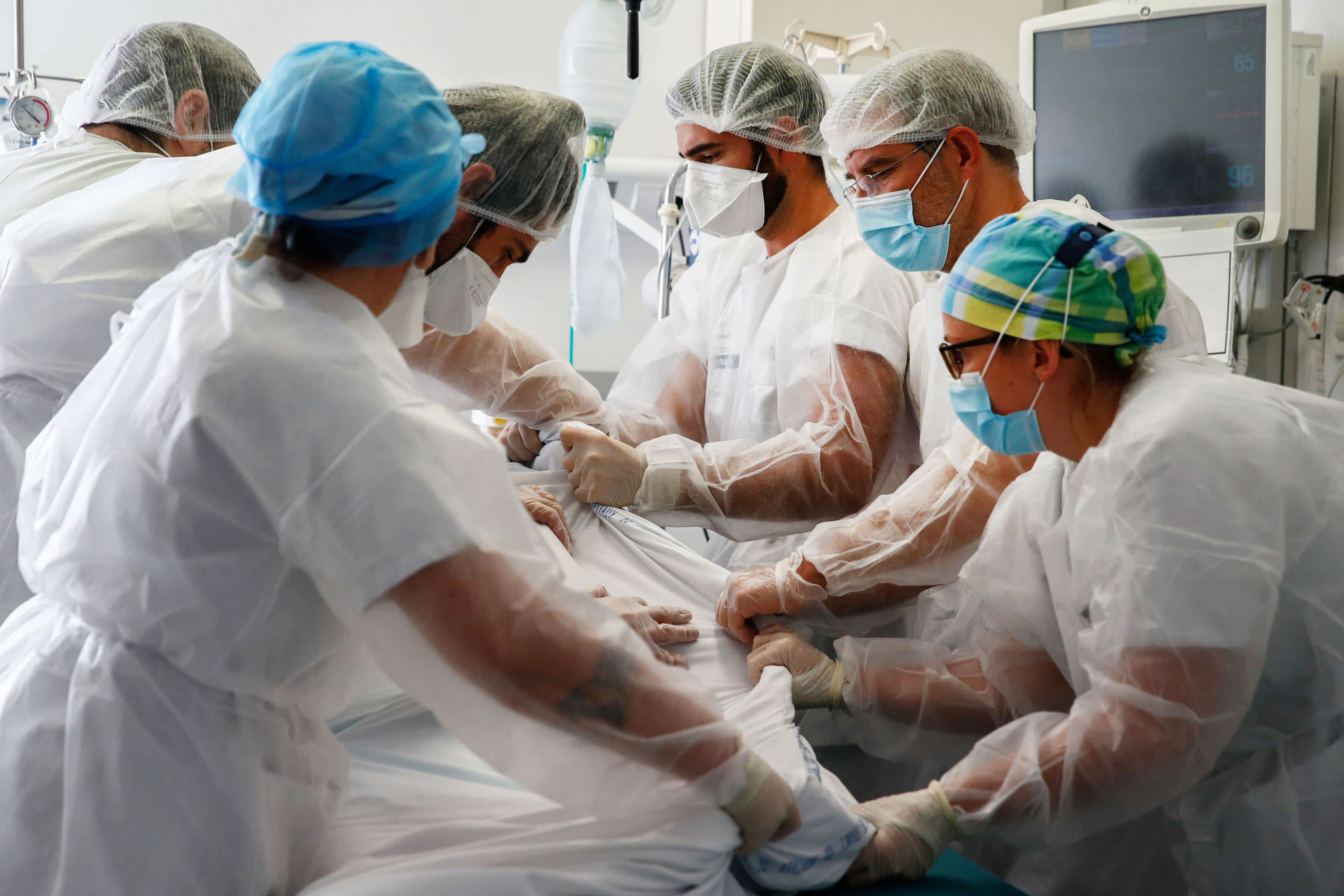Germany announces new Covid restrictions, France braces for more as virus surges across Europe

Doctor Henri Faure and medical workers treat a patient suffering from the coronavirus disease (COVID-19) in the Intensive Care Unit (ICU) at the Robert Ballanger hospital in Aulnay-sous-Bois near Paris during the outbreak of the coronavirus disease in France, October 26, 2020.
Gonzalo Fuentes | Reuters
German officials announced tough new business restrictions on Wednesday meant to curb the spread of the coronavirus and France is bracing for more measures ahead of an address by the president.
German Chancellor Angela Merkel said Wednesday that the country will implement a four-week shutdown of restaurants, bars, cinemas, theaters and some other such facilities beginning Nov. 2 to try to wrestle the virus under control.
Merkel told reporters that the number of Covid-19 patients in intensive care across the country has doubled over the past 10 days. She added that Germany’s hospitals will hit capacity in the coming weeks if that pace continues.
“These are tough measures,” she said. “We must act, and now, to avoid an acute national health emergency.”
Shops, schools and day cares will remain open, she said, but will face new restrictions on capacity. Restaurants will remain open for takeout, Merkel said. She implored citizens to avoid unnecessary travel.
“We can say that our health system can cope with the challenge today,” Merkel said. “But if the pace of infections continues like this, then we’ll reach the limits of what the health system can manage within weeks.”
Germany reported a record spike of 14,964 new cases on Wednesday, according to its disease control agency. The country has reported an average of more than 11,100 new cases of the virus per day over the past week, up more than 61% compared with a week ago, according to a CNBC analysis of data compiled by Johns Hopkins University.
Amid growing fears that the surge in cases and the government’s response to it could devastate an already reeling economy, German Finance Minister Olaf Scholz said November will be a critical month.
“November will be a month of truth,” Scholz said. “The increasing numbers of infections are forcing us to take tough countermeasures in order to break the second wave with targeted and temporary measures, including effective financial aid for the affected companies.”
The virus is surging across much of the Northern Hemisphere as colder weather settles in, forcing people indoors and allowing it to spread more easily. European officials have attributed the surge to “pandemic fatigue,” as well, meaning that people are tired of strictly adhering to public health measures.
France is also bracing for new restrictions, with President Emmanuel Macron set to address the nation at 3 p.m. ET on Wednesday. The country has reported an average of more than 38,700 new cases of the virus per day over the past week, up over 54% compared with a week ago, Johns Hopkins data shows.
Italy reported a record spike of 24,991 new cases on Wednesday, its Health Ministry said. The country has reported an average of more than 18,600 new cases of the virus per day over the past week, up over 88% compared with a week ago, Johns Hopkins data shows.
“We are deeply in the second wave now,” Ursula von der Leyen, president of the European Commission, said at a news briefing Wednesday.
— Reuters, The Associated Press and CNBC’s Nate Rattner contributed to this report.




